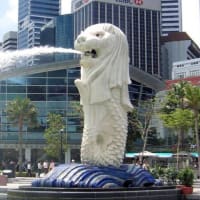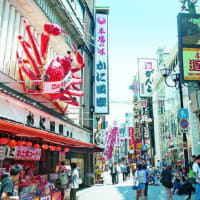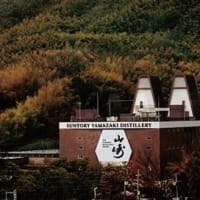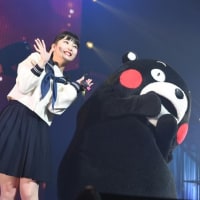
自民党総裁に安倍晋三氏が返り咲き。このビッグニュースを報じた英文記事を取り上げます。而して、TOEICパート7の後半の問題パターン(ダブルパッセージの英文読解)を意識して英文記事を選択しました。ていうか、サーヴィスして「トリプルパッセージ」にしちゃいましたよぉー!
先ず、誰もがその語義を知っているようでしばしば誤解されている二つのキーワード;「nationalist」と「hawk」の定義(definition)を紹介しておきます。いずれもOED(Oxford English Dictionary)の転記引用。実際、今回の「トリプルパッセージ」を理解する上でこれらは必須、鴨です。要は、「nationalist」も「hawk」も必ずしもそう否定的なニュアンスばかりの語彙ではないということ。尚、この定義の日本語訳も「語彙コーナー」冒頭に掲げておきますね(笑)。
nationalist:
・a person who advocates political independence for a country
・a person with strong patriotic feelings,
especially one who believes in the superiority of their country over others.
hawk:
・a person who advocates an aggressive or warlike foreign policy.
ちなみに、アメリカでは、大統領経験者の正式な呼称は大統領退任後も「president」であり、現職の大統領との区別の都合等々、特に紛らわしくない限り「前・元:former/ex」などはつかないのとパラレルに(更に、日本の政界でも総理経験者に対しては、実は、国会議員の仲間内では「総理」と呼び「前・元」を付けない慣習を鑑みて)本稿では、安倍元総理を単に「安倍総理」と表記する場合もあります。加之、<安倍総理の逆襲>を巡る憲法論については下記拙稿をご参照いただければ嬉しいです。
・地方票「軽視」の自民党総裁選-否、安倍総理の逆襲こそ民主主義の帰結である
http://ameblo.jp/kabu2kaiba/entry-11365213681.html

Hawkish Abe wins LDP presidency
Ex-leader comes from behind to defeat Ishiba in 108-89 runoff
The Liberal Democratic Party elected hawkish former Prime Minister Shinzo Abe as its new president Wednesday, pinning its hopes on him to guide the party back into power in the next general election.
The race was especially important as recent polls suggest the LDP, the largest opposition party, could eclipse the ruling Democratic Party of Japan's majority in the next Lower House election, which must be held by summer 2013. Under that scenario, Abe, whose term as party president is three years, would become the nation's next leader.
The former prime minister came from behind in a runoff to defeat ex-defense chief Shigeru Ishiba by a vote of 108-89.
But despite his victory, strong internal and public criticism has stigmatized Abe, who quit as prime minister in 2007 while suffering from ulcerative colitis, which he insists is cured now.
After the vote, Abe thanked LDP members for giving him another chance to lead the party after his abrupt exit five years ago.・・・
The new LDP president is intent on revising the Constitution and has vowed to protect Japanese territorial claims amid strains with neighboring China and South Korea over the sovereignty of disputed islands.
Analysts and some LDP lawmakers, however, have expressed concerns that Abe's hawkish streak could worsen the disputes.・・・
(221 words)
【出典:The Japan Times, Sep. 27, 2012】

Abe launches new LDP leadership team
Shinzo Abe, the new president of the main opposition Liberal Democratic Party, launched his party leadership on Friday, looking to win power from the Democratic Party of Japan in the next general election.
A roster of key party posts proposed by Abe was approved at an extraordinary meeting of the LDP's General Council in the afternoon. The former prime minister returned to the top party job after a closely watched LDP leadership election Wednesday.
Masahiko Komura, 70, a former foreign minister, was appointed LDP vice president. The veteran politician, currently serving his 10th term in the Diet, has long cabinet experience. He was quick to express his support for Abe in the LDP leadership race.・・・
Shigeru Ishiba, 55, a former chairman of the LDP Policy Research Council and defense minister, was named party secretary-general. He lost to Abe in a runoff in the leadership election after finishing first in the first round of voting with a majority of support from prefectural chapters.
Hiroyuki Hosoda, 68, a former chief cabinet secretary, became chairman of the General Council, while Akira Amari, 63, a former economy, trade and industry minister, is the new chairman of the Policy Research Council.
Yasukazu Hamada, 56, was promoted to chairman of the Diet Affairs Committee from acting chairman.
Yoshihide Suga, 63, a close aide to Abe and a former internal affairs minister, was picked as executive acting secretary-general.
Shinjiro Koizumi, 31, a son of former Prime Minister Junichiro Koizumi, remains the party's Youth Division director.
(248 words)
【出典:Jiji Press, Sep. 29, 2012】

Former Prime Minister in Japan Elected to Lead Opposition Party
Shinzo Abe, a nationalist former prime minister, was elected to lead Japan’s main opposition party on Wednesday, giving him a chance of regaining the nation’s top job — a prospect that could worsen the country’s tense relations with China and its other Asian neighbors.
Mr. Abe’s Liberal Democratic Party is poised to make gains in nationwide elections expected soon, in part because of the unpopularity of Prime Minister Yoshihiko Noda. Poll ratings for Mr. Noda and his Democratic Party have been pulled down by the party’s handling of last year’s disasters and gridlock in Parliament that has crippled policy making. ・・・
It is a striking return to the spotlight for Mr. Abe — who called for a stronger and unapologetic Japan when he took office in 2006, but stepped down just a year later, citing a health problem — after his party suffered a defeat in an interim election. At the time, Mr. Abe’s nationalist agenda seemed off the mark for a public that was more interested in jobs and economic recovery.
During his brief term, he angered China and South Korea with moves to change Japan’s pacifist Constitution, denials that Asian women were forced into sexual slavery for the Japanese military during World War II, and efforts to alter school textbooks to present what critics called a whitewashed version of Japan’s wartime history. But in some ways, he kept tensions with China from boiling over, picking Beijing for his first official trip overseas and refraining from visiting a contentious Tokyo war shrine.
But with emotions running high between Japan and China in recent weeks over a set of disputed islands, a return to office by Mr. Abe could help fuel more tension. Mr. Abe has veered further to the right since his time as prime minister, suggesting recently that he intends to visit the Yasukuni war shrine if he becomes prime minister again and may even seek to nullify some of Japan’s war apologies.

Speaking to reporters on Wednesday, Mr. Abe promised to take a strong stand in the dispute with Beijing over the islands, even as he referred to Japan’s strong economic ties with China. He said he would also seek to strengthen Japan’s defense cooperation with the United States by taking a more active military role.
Political analysts had all but written off Mr. Abe after his abrupt resignation, which drew much ridicule and greatly weakened the long-ruling Liberal Democrats. His party eventually lost to the Democrats in 2009, ending a half-century of almost uninterrupted rule.
But now the Democratic Party has lost much of its support, having fallen short on many of its promises to wrest power away from the country’s bureaucrats. The public is disillusioned with reconstruction efforts after the tsunami and nuclear crisis last year, and the moribund economy remains a drag. Mr. Noda is under mounting pressure to call elections soon, though he need not hold them until next summer. Analysts agree that the Democrats would probably lose their majority in Parliament’s lower house in an early vote, but the Liberal Democrats are seen as unlikely to win a majority either, inviting further political gridlock.
Mr. Abe had not been the front-runner in the party balloting on Wednesday; he ran second in the initial round to Shigeru Ishiba, a conservative but less ideological former defense minister. But party elders did not back Mr. Ishiba in the runoff, analysts said, because of an independent streak that led Mr. Ishiba to leave the party for a time in the 1990s. Mr. Abe ultimately won the party vote, 108-89. ・・・
(591 words)
【出典:New York Times, September 26, 2012】

<続く>



















